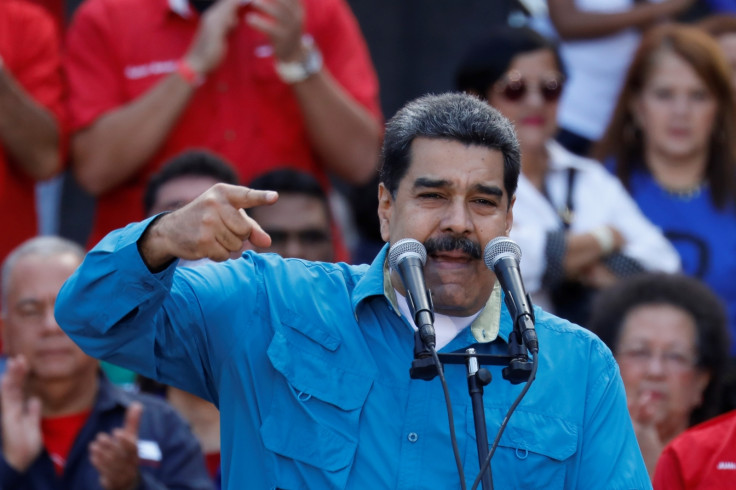Venezuela's Maduro pressing ahead with early 'mega election' despite opposition boycott
The opposition Democratic Unity alliance said the elections will not be free and fair.
Venezuela President Nicolas Maduro is pressing ahead with the proposed presidential election on April 22 despite the decision by an opposition alliance to boycott the election alleging that the poll process was rigged in favour of Maduro and his United Socialist Party of Venezuela .
The socialist president lambasted the Democratic Unity opposition alliance of "erratic conduct" and declared that the "mega-election" would be held with or without the participation of opposition parties.
Maduro, who has been battling a prolonged political and economic crisis, had called for elections months before his official term expires. The proposal was swiftly approved by Venezuela's electoral body. The opposition boycott is expected to only work in Maduro's favour allowing him to secure another six-year-term.
"A great parliamentary mega-election in the country, I am proposing it officially to the National Constituent Assembly for its consideration and let's go for some powerful, powerful elections for a democratic renewal of the country," said Maduro, adding that he wants to conduct legislative, state and municipal polls simultaneously to reinvigorate the democratic process.
The oil-rich country's economy has been battered by declining oil prices and the continuing political power struggle in Caracas. Inflation has skyrocketed and the Venezuelan currency bolivar is in a free fall. There is also a chronic shortage of food, medicines and other essential items.
The opposition said in calling the election the government was to trying "to give an impression of legitimacy that it does not have".
A statement issued by the alliance on Wednesday, 21 February, said: "[It] is just a show by In the name of the immense majority of Venezuelans; we challenge the Maduro government to measure itself against the people in real elections."
Under the Venezuelan constitution, the new term should begin in January 2019. Early election was widely predicted, but there was some hope against the move since the government was engaged in talks with opposition groups for several weeks.
According to reports, there are serious concerns in the Latin American nation that the prevailing political situation is not conducive for a free and fair democratic process.
There is no prominent opposition figure who could stand against Maduro as most of them are either jailed or barred from holding any public office.























